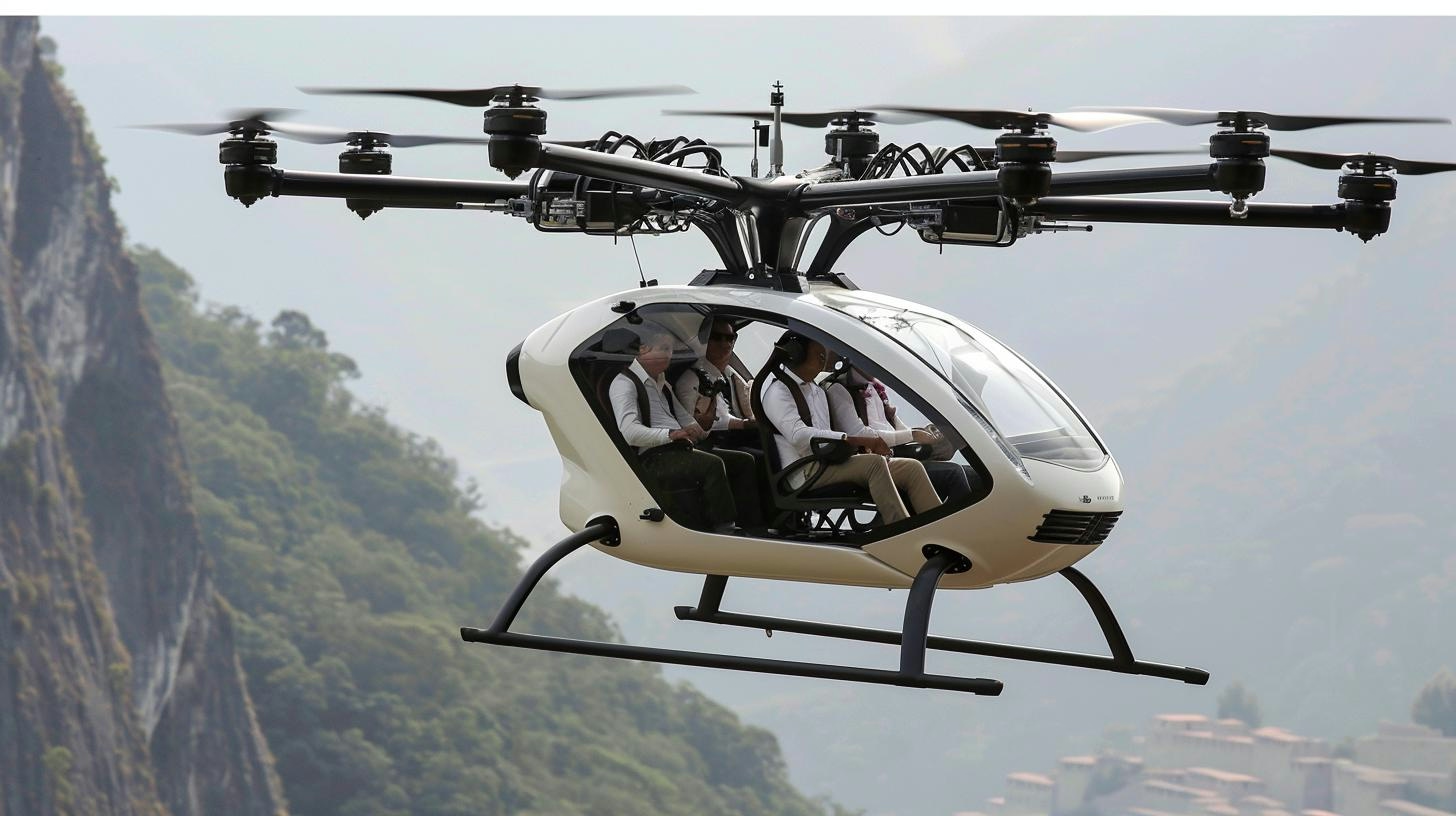AeroGenie — Tu copiloto inteligente.
Tendencias
Categories
eVTOL Air Taxis Aim to Reduce Wait Times at Orlando International Airport

eVTOL Air Taxis Aim to Reduce Wait Times at Orlando International Airport
Orlando International Airport (MCO) is exploring innovative solutions to alleviate the stress and delays commonly experienced by travelers. Lengthy lines at check-in counters, security checkpoints, and crowded terminals often complicate the journey well before boarding. To address these challenges, MCO is embracing electric vertical takeoff and landing (eVTOL) air taxis, a technology poised to transform airport access and streamline passenger flow.
MCO’s Vision for Enhanced Airport Access
In partnership with the Federal Aviation Administration (FAA), Orlando International Airport is investigating how eVTOL aircraft could be integrated into the National Airspace System (NAS) to provide faster, more direct transportation options for travelers. In 2025, the airport completed a three-day simulation with the FAA to test the operational feasibility of eVTOL air taxis alongside traditional commercial flights. The initiative aims to enable passengers to bypass conventional bottlenecks by flying directly from city-center vertiports to the airport, significantly reducing travel time and congestion.
These electric aircraft, capable of vertical takeoff and landing, offer the potential to revolutionize the airport journey by providing swift, point-to-point connections. This approach could minimize the time passengers spend navigating terminals and waiting in queues, thereby enhancing the overall travel experience.
FAA Simulation and Operational Testing
The FAA’s simulation took place at the William J. Hughes Technical Center in New Jersey, employing Human-in-the-Loop (HITL) modeling to replicate real-world scenarios for eVTOL integration. The exercise evaluated potential flight routes, air traffic control procedures, and the interaction of eVTOLs with existing commercial air traffic. Ensuring safety and operational efficiency was paramount, with the goal of harmonizing these new aircraft within the current airspace infrastructure without causing disruptions.
Successful integration of eVTOLs could lead to a significant reduction in passenger wait times and a more streamlined airport access process, marking a critical milestone in the advancement of urban air mobility.
Challenges and Industry Outlook
Despite the promising outlook, several obstacles remain before eVTOL air taxis can be widely adopted. Regulatory approval processes are complex and ongoing, while the high costs associated with development and operation present financial challenges. Technical issues related to the safe and reliable deployment of urban air mobility solutions continue to require resolution.
Market responses to eVTOL technology have been mixed. While some investors have realized substantial gains, others caution against premature optimism. The competitive landscape is varied: some companies have discontinued their eVTOL projects, others are concentrating on specialized commercial uses, and many remain in early production phases.
Nonetheless, the sector continues to garner significant interest from startups and government programs. The White House’s eVTOL Integration Pilot Program exemplifies federal support aimed at accelerating the commercialization of these technologies, underscoring ongoing commitment to advancing advanced air mobility.
Looking Forward
If regulatory, technical, and market challenges can be addressed, eVTOL air taxis have the potential to transform airport travel by reducing wait times and easing congestion at hubs like Orlando International Airport. While the vision is compelling, the timeline for widespread adoption remains uncertain and contingent on continued progress across multiple fronts. Orlando’s current initiatives represent a meaningful step toward this future, signaling the beginning of a new era in air transportation.

Emirates Unveils Cabin Design for New Boeing 777X

Eighteen Years On, the Airbus A380 Remains Central to a $34 Billion Airline

How a boom in luxury airline seats is slowing down jet deliveries

Navitaire Outage Attributed to Planned Maintenance

DigiYatra Debuts Outside Aviation at India AI Impact Summit

Vietnam Orders Strengthen Boeing’s Commercial Outlook

Airbus Signals Uncertainty Over Future A400M Orders

JobsOhio Awards $2 Million Grant to Hartzell Propeller for Innovation Center

Collins Aerospace Tests Sidekick Autonomy Software on YFQ-42A for U.S. Air Force CCA Program

How the Airbus A350-1000 Compares to the Boeing 777
